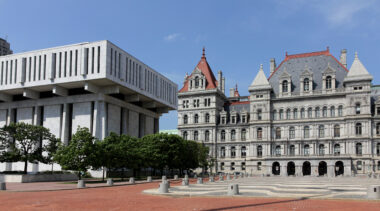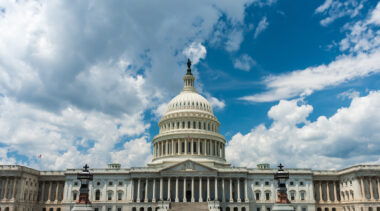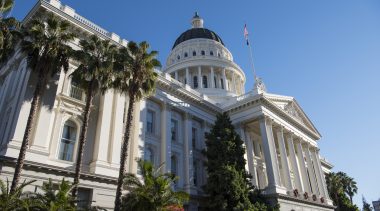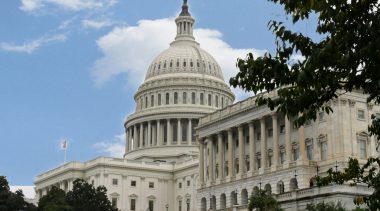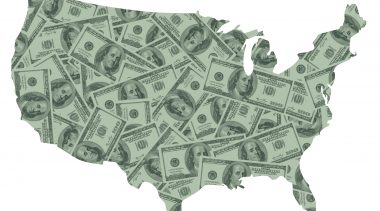Marc Joffe is a senior policy analyst at Reason Foundation.
After a long career in the financial industry, including a senior director role at Moody's Analytics, Joffe's research focuses on municipal finances, alternative asset investments, transportation policy and federal, state and local fiscal policy.
His financial research has been published by the California State Treasurer's Office, UC Berkeley, the Mercatus Center at George Mason University, California Policy Center, The Center for Municipal Finance, and the Macdonald-Laurier Institute among others.
Joffe is a regular contributor to The Orange County Register and his op-eds have also appeared in The Fiscal Times, Governing, National Review, The Hill, and The San Jose Mercury News.
Joffe recently presented a panel paper at the APPAM 42nd Annual Fall Research Conference along with University of Texas, Dallas Associate Professor Evgenia Gorina and his Reason colleagues Anil Niraula and Jen Sidorova.
He has an MBA from New York University and an MPA from San Francisco State University.
-
Private Equity Returns Stumbled in 2020, Hurting Public Pension Plans
Public pension systems should be concerned about private equity's high fees and potential to hurt asset performance.
-
COVID-19 Pandemic Response Illustrates Need for Better State and Local Financial Data
If every state, major city, and county produced monthly cash reports in a standardized, machine-readable format within two weeks of month-end, federal policymakers would have a much better picture of how revenues and expenditures are evolving.
-
More Census Data Shows Government Tax Revenue Hasn’t Been Negatively Impacted By COVID-19
The Census Bureau estimates 2020 aggregate state and local tax revenues of $1.62 trillion, or about 2 percent above the 2019 total of $1.59 trillion.
-
High-Speed Rail Is Unlikely to Play a Major Role In Achieving Climate Goals
Be wary of high-speed rail's potential to fight climate change or replace automobile and air travel in cost-effective ways.
-
How to Spend Stimulus Money to Reduce State and Local Retiree Health Care Debt
Rather than create new spending programs, state and local governments would be wise to use the largely unnecessary federal funds coming their way to pay down debt.
-
Most Local Governments’ Tax Revenues Haven’t Been Hit Hard By COVID-19 Pandemic
Local government revenues have largely remained stable during the COVID-19 pandemic due to their reliance on property tax revenue.
-
A Not-So-Simulative COVID-19 Stimulus Bill
The costly, ill-timed and poorly targeted COVID relief measure now in Congress is unlikely to achieve its goals.
-
New York State’s Other Post-Employment Benefit Problem
New York's public sector entities have more than $300 billion of unfunded other post-employment benefit liabilities.
-
Debatable Ideas: Examining Key Transportation Issues, Myths and Misconceptions
In this series, Reason's transportation policy analysts examine key infrastructure issues, including common myths and misconceptions found in today's policy debates.
-
House COVID-19 Stimulus Bill Has Big Differences In Per Capita Money Going to States
The allocation formula used by the legislation benefits low population states and those that had high unemployment rates at the end of last year.
-
California’s Marin County Pension System Moves Toward More Prudent Investment Return Assumptions
The pension system recently joined a handful of other local pension plans adopting more realistic investment return assumptions.
-
California Should Prioritize Paying Down Public Pension Debt
California's long-term budget concerns should motivate policymakers to pay down the state's public pension debt as quickly as possible.
-
Does the Bay Area Need a New Subway Tunnel?
With uncertainty around travel patterns and a likely permanent increase in remote work, BART’s existing transbay tunnel is unlikely to return to its peak utilization in the years ahead.
-
Putting Milton Friedman’s Shareholder Primacy Ideas in Historical Context
If corporate executives eschew profits in pursuit of social responsibility, they are, in Friedman’s terms, “spending someone else's money for a general social interest.”
-
New Budget Reconciliation Resolution Portends Dangerous Debt Trends
The resolution predicts the national debt will reach $41 trillion in 2030.
-
Initial 2020 Revenue Figures In Many States Are Higher Than Expected
The COVID-19 pandemic didn’t hurt state tax revenues as badly as had been predicted by many states and economists.
-
How the Federal Reserve’s Actions and Low Interest Rates Impact Public and Private Retirement Savings
Policymakers should give more consideration to the adverse impacts that repressive interest rate policies have on both public and personal retirement savings.
-
COVID-19’s Lasting Impact on Housing, Commuting and Climate Change
The COVID-19 pandemic is forcing Californians and policymakers to adapt to accelerating trends that were already underway.








